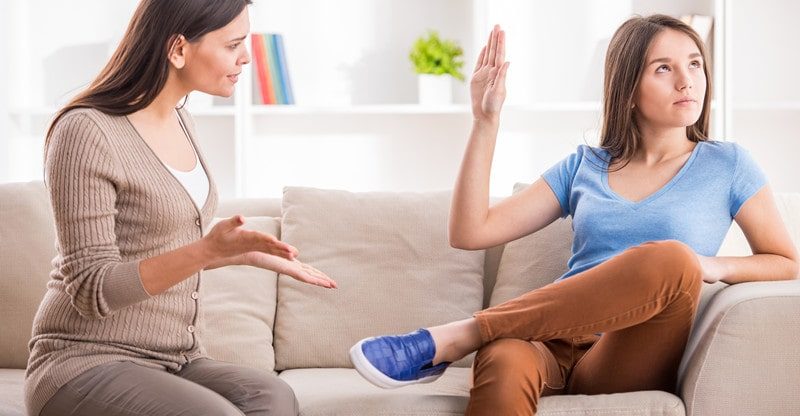Change Your Habits to Become a Better Parent
Your kids are watching!
You first notice it when they perfectly use “oh s***” at the age of two after hearing you say it. Later, you may see them exhibit the same hesitancy when asking someone to the junior prom. But what if you notice them sitting around the house allowing their health to decline at a young age – or maybe they throw back a bottle of booze every night the way you used to?
Changing your personal habits are quintessential to setting the right example for your kids and becoming a better parent.
1. Ditch the Alcohol
Believe it or not, nearly 7 million children in the U.S. have at least one alcoholic parent living with them. You might be thinking, “the parent’s the one being effected, not the kid.” However, children of alcoholics are upwards of 10x more likely to become alcoholics themselves than other children.
This may be in part because alcoholism can be caused by genetic factors that you’ve passed on to your child. More likely, however, is that the environment they are raised in leads to them developing maladaptive coping mechanisms that continue into adulthood.
How to fix it:
The number one way to become a better parent is to figure out your alcohol abuse treatment options and take advantage of them. There are a wealth of resources available to help you tackle alcohol addiction at its core.
2. Don’t Overuse Meds
Just like with alcohol, if you’ve found yourself using a recent pain killer prescription to calm your mind after a hard day, your kids are likely to do the same when they grow up. This is typically because prescription medications like opioids are a depressant and are shown to cause parents to neglect their children physically and emotionally.
This physical neglect, no matter how unintended, has a high correlation with children growing up and abusing opioids themselves.
How to fix it:
Studies show that even using pain pills as prescribed can lead to a physical dependence on the drugs. Others find themselves overusing the pills because of past trauma or mental illness. The best way to show up for your children when you’re struggling this way is to get help!
The best drug rehab centers are equipped with evidence-based therapies, masters-level clinicians, and small treatment groups to help you tackle an opioid addiction at its core. Many of these types of programs double as dual diagnosis treatment centers – facilities focused on treating both mental health and substance abuse issues simultaneously.
A number of these programs also accept insurance through your employer to offset the cost (sometimes up to 100%) of treatment. Here are the Aetna substance abuse guidelines, for example. While they will vary from policy to policy, this can help guide you toward what to ask. Most facilities will verify your insurance in just a few hours to help you even further.
3. Eat Healthier
Are you reading this while sitting in the fast-food drive-thru waiting for your super-sized meal deal? If so, it may be time to consider a different diet. What you eat directly affects everything from how your hair grows to your mood to the level of energy you have every day.
You can start replacing Sunday morning pancakes and bacon with a green smoothie and veggie omelette. During the week you can take the kids to the store and pick out the fruits and vegetables they want most – just be sure to sneak in some spinach and greek yogurt.
You can then make the meal together over the weekend to bond together and practice healthy eating habits together!
4. Get Active
With less alcohol and pills in your system and better foods in your diet, a bit of exercise is essential! This will give you more energy to play with the kids and be sure you’re still around to see your grandkids!
While there are numerous ways to work out, it’s best to start simple and grow slowly. This will not only help you avoid burnout, but it will also help you keep with the program. Here’s a simple, one-week program suggested by Healthline:
• Monday: 40-minute moderate-pace jog or brisk walk.
• Tuesday: Rest day.
• Wednesday: Walk briskly for 10 minutes. Then, complete the following circuits, resting 1 minute after each set but not between exercises. Stretch afterward.
- Circuit #1: 3 sets alternating 10 lunges for each leg, 10 pushups, 10 situps
- Circuit #2: 3 sets alternating 10 chair-dips, 10 jumping jacks, 10 air squats
• Thursday: Rest day.
• Friday: 30-minute bike ride or moderate-pace jog.
• Saturday: Rest day.
• Sunday: Run, jog, or take a long walk for 40 minutes.
As you can see, because this workout is for beginners it’s full of walking, resting every other day, and a low number of reps. Of course, you’d want to increase the intensity and number of reps over time, but this can easily be you and your child’s weekly routine for a month or two.
Exercising with your child/teen will not only help teach them good habits, but it will also give you a chance to bond and focus on yourselves, together!
5. Practice Self-Care
Self-care seems to be the buzzword of the 2020s – but it has some merit. Taking care of your body and your mental health are the foundation to living a better life (and being a better parent).
Practicing self-care is an amazing way to care for yourself while also setting the example for your children. In fact, you can do it with them to help start those practices early. For example:
1. Go for a walk after school and discuss all of the positive things from the day (even on the crummy days)
2. Wake up a bit earlier and plan your day to simultaneously relieve anxiety and be more productive
3. Do a bit of yoga or focused meditation before starting your day to focus your mind gracefully transition from sleep to waking
At the end of the day, the number one way to be a better parent is to set a good example for your kids! This means adjusting your lifestyle to include healthier habits that will help you and set great foundation for your children.



